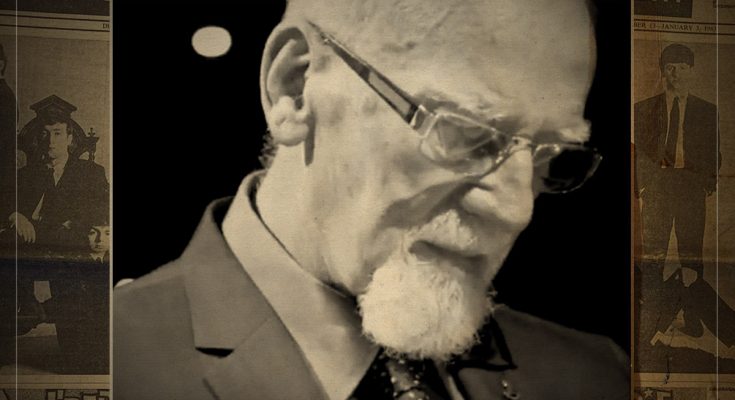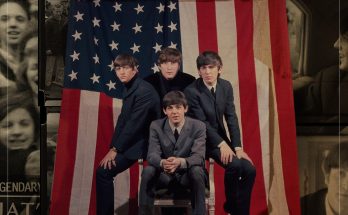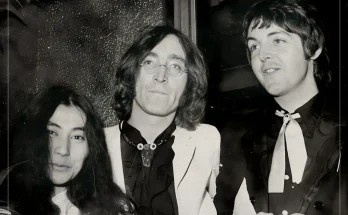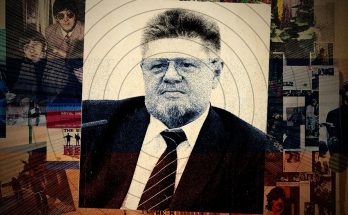The honourable title of being the ‘Fifth Beatle’ is a regularly debated position, and many fans of the band have spent decades arguing who the most rightful recipient of such a decoration ought to be.
Yes, the Fab Four that everyone recognises, John, Paul, George and Ringo, are most certainly the important names to remember, but throughout their history and in the legacy that they’ve left behind, there have been a number of additional key players in establishing The Beatles as the most celebrated group of all time.
You could make a claim for the likes of Pete Best and Stuart Sutcliffe both having earned the title due to their roles in the band during the early pre-fame days, and had it not been for Best’s resignation from the group, or Sutcliffe’s tragic death, there could have been a world where we had a different foursome or were treating the ‘Fifth Beatle’ as an undisputed norm.
In addition to these genuine former members, there’s also producer George Martin, whose studio wizardry was arguably a vital part of why the band became so revolutionary towards the latter part of their career together. You might also want to acknowledge session musicians who regularly collaborated with the band, such as esteemed guitarist Eric Clapton, who was a friend and undeniable fan of the band, or keyboard player Billy Preston, who performed on a number of their later albums.
On top of that, there’s manager Brian Epstein, whose insistence that The Beatles were set to be the next big thing helped propel them into the spotlight, and his hard graft ultimately helped them in ways that they perhaps wouldn’t have been able to surmount on their own. On the other end of the spectrum, there’s also a decent argument to be made that there’s a world in which the ‘Fifth Beatle’ is like the ‘twelfth man’ on a football pitch, and it’s the fans who are the most deserving of this position.
However, one man who doesn’t get credited anywhere near enough is Joe Flannery, the band’s first booking agent, as without him, they may have been more a ‘Drab Four’ that nobody talks much about, forever consigned to being a footnote in the history books. But who, exactly, was Joe Flannery?
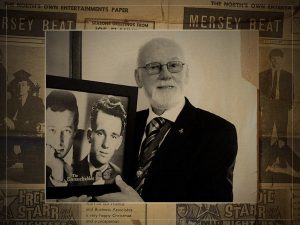
So, who was Joe Flannery?
In the early days of the band, Epstein recruited Flannery to handle all of the band’s live bookings. Having known the fellow Liverpudlian his whole life, he realised that Flannery had all of the nous and knowledge required to be a successful right-hand man, and knew that his extensive knowledge of the grassroots music scene in Liverpool would work a treat when it came to securing gigs for a fledgling band.
Epstein knew that he couldn’t be the one handling such an interpersonal role, given his mild-mannered demeanour and softly-spoken voice. Flannery had more of a charm about him and had a little bit of experience taking bookings for another local band, The Teenage Rebels, of which his brother was a member. Shortly after having struck up a rapport with the band, which still contained Best as drummer instead of Ringo Starr, Epstein introduced Flannery into the picture, and he’d soon become an important fixture in the development of the band.
The band would regularly stay at Flannery’s house after shows, write songs in his living room, and spend time with him outside of a professional context, with him and John Lennon regularly going for coffee to hear Beatles songs on the radio, and him having taught George Harrison how to drive. It was clear that the group looked up to Flannery not only as someone who was looking out for them in their pursuit of glory, but as a role model whom they could trust.
He’d eventually step down from his position when the band reached a level of fame he was unable to handle the pressure of organising, but remained in contact with the group until long after they’d disbanded, even reaching out to Lennon while he was working on solo material. His career in the music business took several turns, offering the likes of Jimi Hendrix and ABBA their starts in Hamburg, as he had done previously with The Beatles for just over a year.
It’s evident that the band saw him as being as close to a fifth member in the early years as any other candidate. While he may not be a household name, he’ll always be fondly remembered for how he gave the group some of their earliest shots at fame in the Liverpool area.
